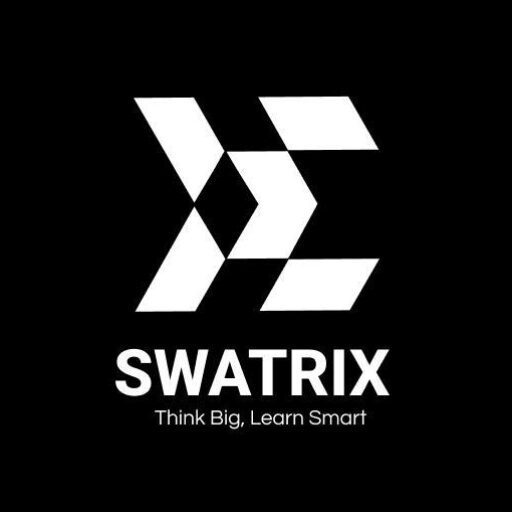Digital Marketing
Digital marketing refers to the use of digital channels, platforms, and technologies to promote products, services, and brands. It encompasses a wide range of strategies and tools, including search engine optimization (SEO), social media marketing, content marketing, email campaigns, and paid advertising. Digital marketing allows businesses to reach a global audience, track customer engagement, and optimize campaigns in real time.
Reviews 4.7 (253 user ratings):
4.721 students
Price:
₹ 5000/-
The rapid growth of digital technologies has transformed marketing practices, making data-driven decision-making and personalized communication essential. Professionals in digital marketing must understand consumer behavior, analytics, and emerging trends to create effective marketing strategies. While digital marketing offers significant advantages in terms of scalability and precision targeting, it also presents challenges related to data privacy, algorithm changes, and increasing competition.

Course Descriptions :
“Introduction to Digital Marketing” provides a comprehensive overview of digital marketing principles and strategies. Participants explore core concepts such as online customer behavior, digital marketing channels, and the role of data analytics in modern marketing practices.
“Search Engine Optimization (SEO)” focuses on optimizing websites to rank higher in search engine results. Topics include keyword research, on-page and off-page SEO, technical SEO, and best practices for improving organic visibility.
“Search Engine Marketing (SEM) and Pay-Per-Click (PPC)” delves into paid advertising strategies across search engines. Participants learn how to create and manage ad campaigns, conduct keyword bidding, and optimize ad performance for maximum return on investment (ROI).
“Social Media Marketing” explores strategies for promoting brands on social platforms such as Facebook, Instagram, LinkedIn, and Twitter. Participants learn about content creation, audience targeting, social media analytics, and effective engagement techniques.
“Content Marketing and Strategy” covers the creation and distribution of valuable content to attract and retain customers. Participants explore storytelling, content planning, SEO-driven content, and measuring content performance across digital platforms.
“Email Marketing and Automation” teaches participants how to design and execute email marketing campaigns. Topics include email segmentation, personalized messaging, A/B testing, and leveraging automation tools for customer engagement and retention.
“Web Analytics and Data-Driven Marketing” focuses on measuring and interpreting digital marketing performance. Participants learn to use tools like Google Analytics to track key metrics, analyze user behavior, and make data-driven decisions.
“Affiliate and Influencer Marketing” examines collaborative marketing strategies where businesses partner with affiliates and influencers. Participants learn about affiliate networks, tracking performance, and building successful influencer campaigns.
“Online Reputation Management (ORM)” explores techniques for monitoring and improving a brand’s online presence. Participants study crisis management, customer review strategies, and maintaining a positive digital image.
“E-commerce Marketing” focuses on strategies for driving traffic and sales on online retail platforms. Topics include conversion rate optimization (CRO), product listings, digital merchandising, and customer retention tactics.
“Mobile Marketing and App Promotion” addresses strategies for engaging audiences on mobile devices. Participants learn about mobile-first design, app store optimization (ASO), SMS marketing, and in-app advertising.
“Digital Advertising and Media Buying” explores paid media strategies across display networks, social platforms, and programmatic advertising. Participants study ad formats, audience targeting, and optimizing ad spend for better results.
“Marketing Automation and Customer Journeys” focuses on streamlining marketing processes through automation tools. Participants learn to design automated customer journeys, personalize experiences, and improve lead nurturing.
“Digital Marketing Regulations and Ethics” covers the legal and ethical aspects of online marketing. Topics include data privacy laws (e.g., GDPR, CCPA), advertising standards, and ethical practices in consumer targeting and data usage.
“Future Trends in Digital Marketing” investigates emerging technologies and innovations shaping the digital landscape. Participants explore artificial intelligence in marketing, voice search, and the role of augmented reality (AR) and virtual reality (VR) in future campaigns.
“Hands-On Projects” is a practical course where participants apply digital marketing concepts to real-world scenarios. Projects include designing marketing campaigns, optimizing websites for SEO, and analyzing digital advertising performance. This course emphasizes strategic thinking, creativity, and technical proficiency.
This course includes:
- 30 hours on-demand video
- 6 months access
- Access on mobile and TV
- Free Webinar
- Certificate of completion
Student Testimonials for Digital Marketing
- Best Conference
- 100% Certified & Trusted
- Enjoy 24/7 World Class Support
The Digital Marketing course helped me master SEO, social media, and Google Ads. I now run campaigns confidently and track real-time results.
